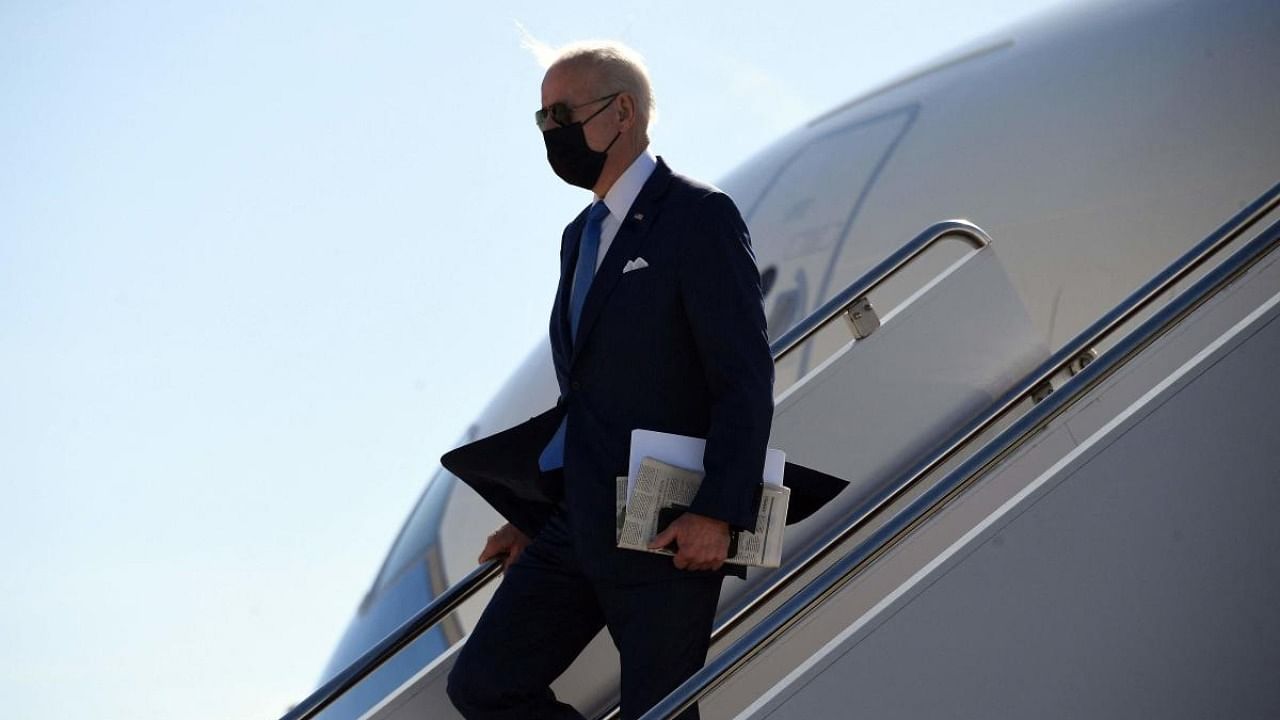
Hours after expelling 10 Russian diplomats in connection with interference in last year's US presidential elections, President Joe Biden has proposed a strategic stability dialogue with Moscow, as officials of the two countries discussed the possibility of a summit meeting in Europe this summer.
The US on Thursday announced the expulsion of 10 Russian diplomats and slapped sanctions on over 30 individuals and key financial institutions as it held Kremlin accountable for interference in last year's presidential election and the hacking of American federal agencies.
Hours after signing the executive order imposing sanctions on its erstwhile cold war rival, Biden told reporters at the White House that during a telephonic conversation with his Russian counterpart, Vladimir Putin, he had proposed that they meet in person this summer in Europe for a summit to address a range of issues facing both the countries.
"Our teams are discussing that possibility right now. And if that summit were to occur, and I believe it will, the United States and Russia could launch a strategic stability dialogue to pursue cooperation in arms control and security,” Biden said.
“We can address critical global challenges that require Russia and the United States to work together, including reining in nuclear threats from Iran and North Korea, ending this (Covid-19) pandemic globally, and meeting the existential crisis of climate change,” he said.
During the phone call, Biden said he expressed concern on Russia's military build up on the Ukraine border and in Crimea.
"I affirmed US support for the sovereignty and territorial integrity of Ukraine. And I strongly urged him (Putin) to refrain from any military action,” he said.
"Now is the time to deescalate. The way forward is through thoughtful dialogue and diplomatic process. The US is prepared to continue constructively to move toward that process. My bottom line is this: where there's an interest in the United States to work with Russia we should and we will. Where Russia seeks to violate the interests of the United States we will respond. We will always stand in defense of our country, our institutions, our people, and our allies,” Biden said.
Biden said he discussed the nature of the relationship between the countries. "And I was candid, respectful, the conversation was candid and respectful. Two great powers with significant responsibility for global stability,” he said.
“President Putin and I have had a significant responsibility to steward that relationship. I take that responsibility very seriously as I'm sure he does. Russia and Americans are both proud and patriotic people. And I believe the Russian people, like the American people, are invested in a peaceful and a secure future of our world,” he said.
Biden said during the campaign for the presidency, he was unequivocal that if elected president he would respond to any attempt to influence the elections.
“I told him if it turned out that I thought that there was engagement in our elections that I would respond. Later during the transition as we learned more about the SolarWinds cyber intrusion I made clear that I'd respond once we determined who had in fact conducted a hack on the scope and scale that occurred,” he said.
During the phone calls in January and again in April, Biden said he told Putin that the US would shortly be responding in a measured and a proportionate way. "Because we have concluded that they had interfered in the election and SolarWinds was totally out of inappropriate," he said.
Russia has denied any involvement in US elections or on offering the bounties. Moscow has also said that it has nothing to do with the SolarWinds computer attack.
"Today I have approved several steps including expulsion of several Russian officials as a consequence of their actions. I've also signed an executive order authorising new measures including sanctions to address specific harmful actions that Russia has taken against US interests. I was clear with President Putin that we could have gone further but I chose not to do so. I chose to be proportionate," Biden said.
The United States is not looking to kick off a cycle of escalation and conflict with Russia.
"We want a stable, predictable relationship. If Russia continues to interfere with our democracy, I'm prepared to take further actions to respond. It is my responsibility as president of the United States to do so. But throughout our long history of competition, our two countries have been able to find ways to manage tensions and to keep them from escalating out of control," he said.
"There are also areas where Russia and the United States can and should work together. For example, in the earliest days of my administration we were able to move quickly to extend for five years the New START treaty and maintain that key element of nuclear stability between our nations. That was in the interest of the United States, of Russia, and quite frankly of the world. And we got it done," he said.